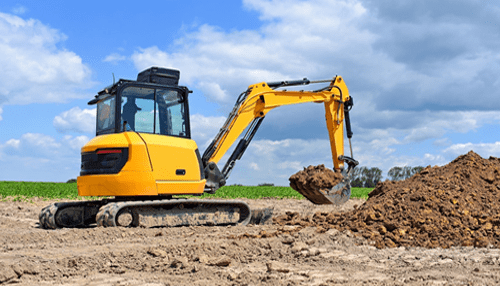Construction aggregates are the most mined products worldwide. In the Philippines aggregates industry, a majority of quarrying establishments focus on extracting sand, crushed rocks, and gravel for the manufacturing of asphalt and concrete products.
These materials are indispensable, especially with the surge in construction projects across the country. But to supply the steadily growing demand for these products, firms must invest in equipment and technological improvements, beginning at the quarry site.
Efficiency is the Name of the Game
Due to their shallow, open-pit nature, quarries come with myriad environmental and operational challenges. The prolonged exposure of workers to the elements, plus the looming threat of floods and landslides, poses several risks and safety hazards. Add to that the pressure of keeping up with the government’s Build Build, Build program and ensuring compliance with tightening regulations.
Given these challenges, many firms are forced to exhaust the machinery and manpower they have, which, in turn, lead to costly downtime and over-fatigue among workers. These not only create unsafe working conditions in already hostile terrain but could also significantly hurt the company’s bottom line.
It’s also a race against time because quarries can only legally run for a certain number of hours in a day and a certain number of days in a week. The aggregates suppliers must step up and adopt new technologies, machinery, and operational models to prevent shortages and sudden price increases.
Powering the Modern Quarry: New Fleet and Integrated Systems
Limited operating hours and growing demand put a premium on uptime and efficiency. Upgrading units or replacing the fleet with a new one should be high on the list of priorities. This will help reduce mechanical issues and significantly improve a quarry’s yield, extraction speed, and overall efficiency, which then leads to profitability.
For instance, Volvo’s fleet of articulated excavators and haulers, available in over 40 Topspot Heavy Equipment service points across the country, prove to be essential in paving the way to higher yields and profits. Successful mining firms across the globe swear by these heavy-duty trucks for their performance in even the most demanding conditions and applications.
Upgrades in production plants are also crucial. Executives should invest in cutting-edge crushers and screening circuits to optimize process flow and productivity.
Sound water management for aggregate washing processes is also worth looking into. By adopting water-wise strategies, quarries can minimize their environmental impact and do their part in protecting surface and groundwater resources. Technologies like portable water clarifiers can immediately reclaim 90 percent of the water used to wash the aggregates and eliminate settling ponds.
Introducing data-driven technologies, like data collection and 3D modeling, are actions worth considering, as well. These improvements not only speed up the building aggregates supply chain but also keep firms far more productive and profitable in a more sustainable way.
Aggregates may be interchangeable goods, but they are the raw materials for economic growth. With the country experiencing a surge in development, the industry must fully commit to it its efficiency goals to ensure the optimal use of the country’s quarry resources.



